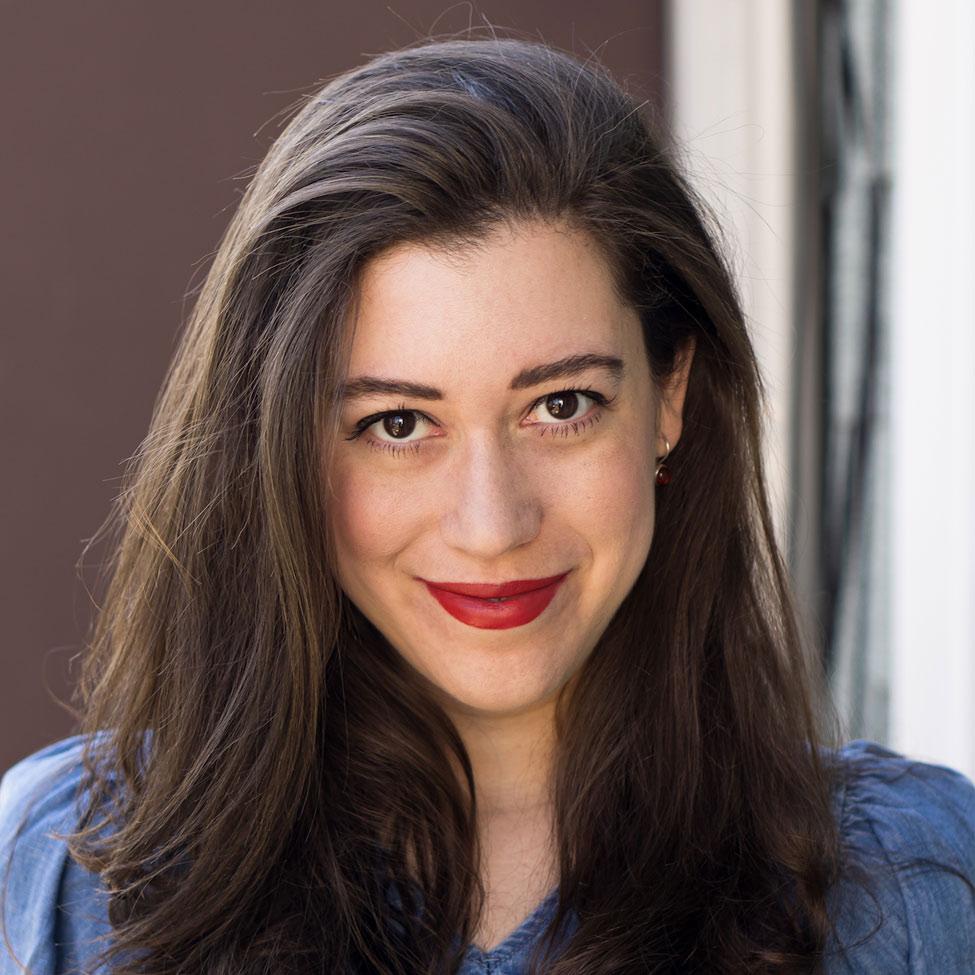
Adjunct Professor of English Carlie Hoffman, MFA, Wins National Jewish Book Award
Adjunct Professor of English Carlie Hoffman, MFA, received a 2024 National Jewish Book Award for her poetry collection entitled When There Was Light.
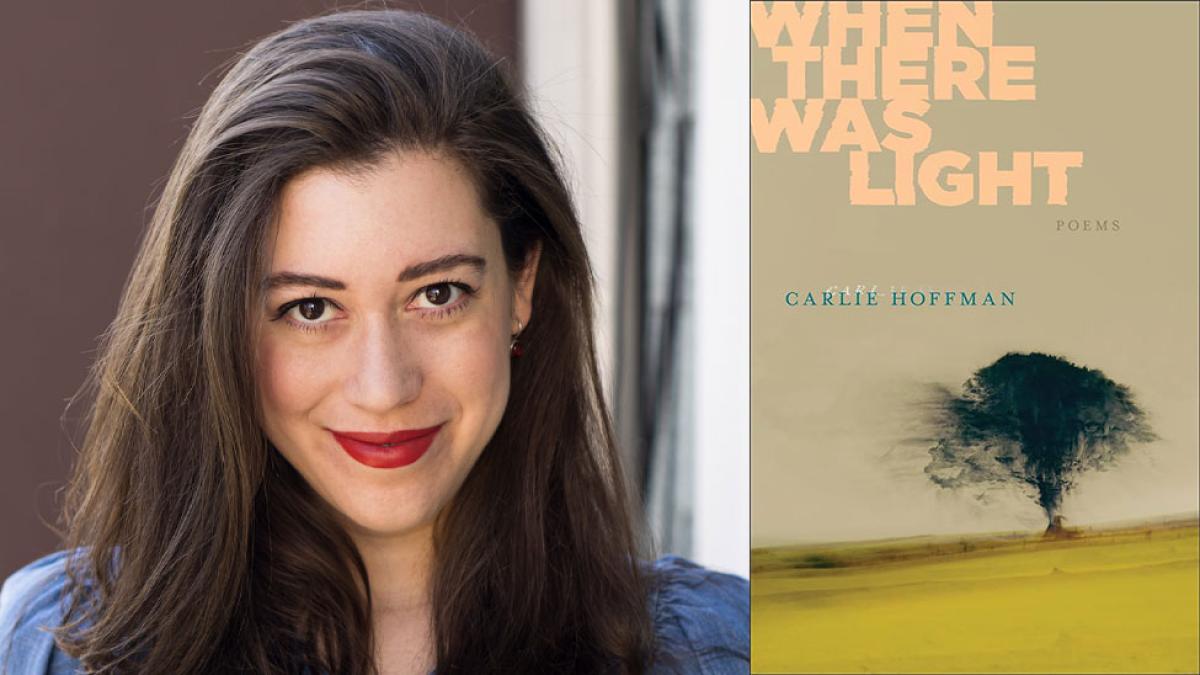

Adjunct Professor of English Carlie Hoffman, MFA, received a 2024 National Jewish Book Award for her poetry collection entitled When There Was Light.
Hoffman was awarded the Berru Award in Poetry in Memory of Ruth and Bernie Weinflash. Now in its 73rd year, the National Jewish Book Awards is a prestigious and long-running program of the National Jewish Council. This year, more than 100 judges reviewed over 650 submissions.
When There Was Light is Hoffman’s second published poetry collection, following her debut This Alaska, and explores themes of identity, heritage, family, and loss.
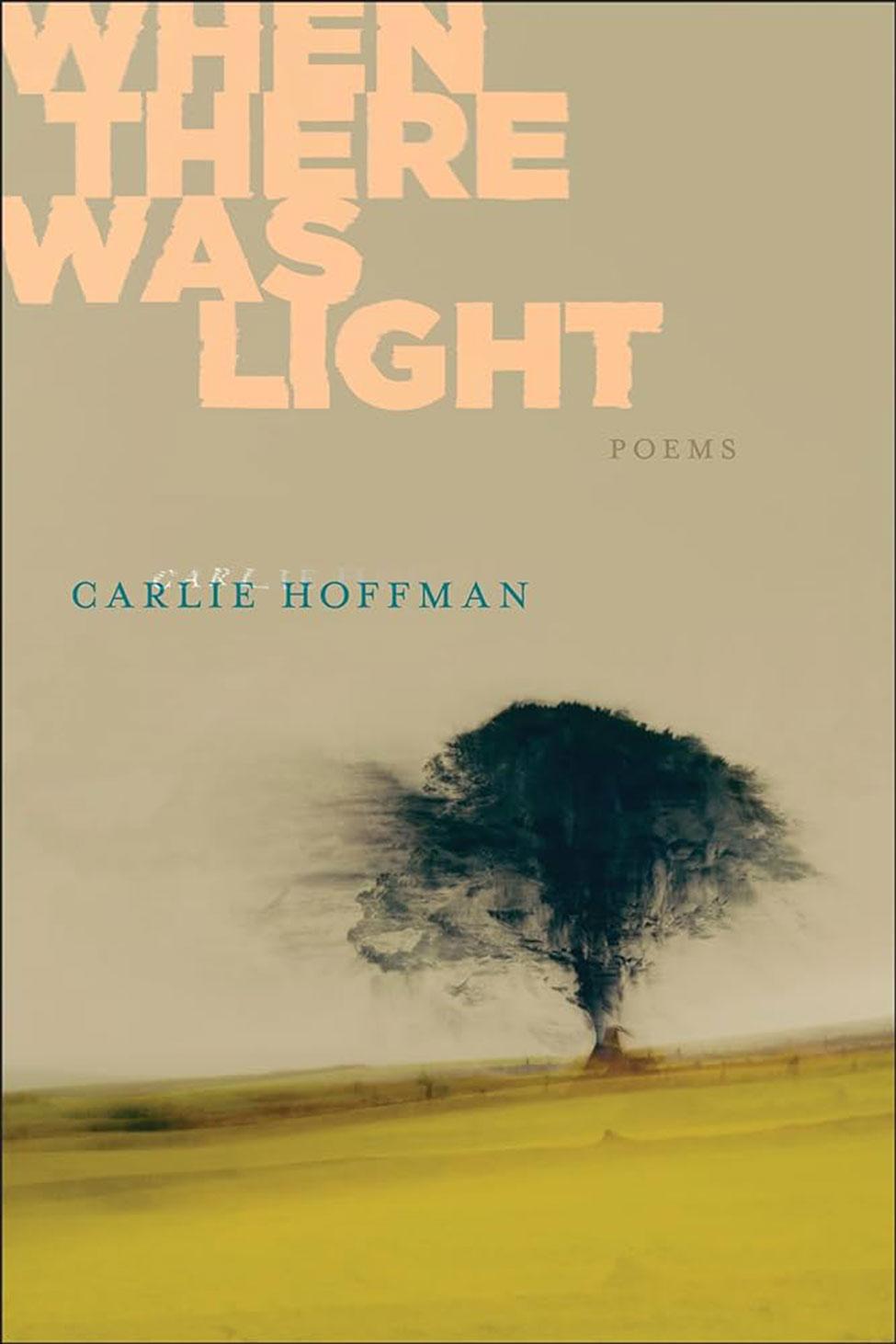
“Carlie Hoffman’s When There Was Light shows a mastery of thinking through language,” said Sean Singer, National Jewish Book Award judge. “When There Was Light adds to Jewish poetics not only in its subjects, but in its system of thought: an area of doubts, wishes, and possibilities.”
Hoffman won a Northern California Publishers and Authors Gold Award in Poetry for This Alaska and was a finalist for the Foreword INDIES Book of the Year Award. She’s also received a 92Y/Discovery Prize and an Amy Award from Poets & Writers.
Experts' Tips on Selling Online
Keep in mind that the online webpage where your products are offered for sale is only a small part of what is required for a successful e-commerce business. It’s a bit like the façade of a Hollywood movie set. One also needs to consider the variety of other basic functions required to operate a business, such as inventory management, payment processing, packaging, shipping, customer service and returns, among many others.
Expert Insight on Managing Finances as Full-Time Travelers
Take advantage of the information available on the Internet in real-time. There are so many reputable review sites today that provide up-to-the-minute reviews. Put the time in for research, and you can make informed decisions.
Family of brutally slain New York student feels betrayed by prosecutor, allege ‘secret plea deal’ with suspect
Bennett Gershman, a former prosecutor who is a professor at Pace University Law School studying prosecutorial misconduct, said attorney-client privilege barred Hoovler from disclosing his conversations with the former client.
IVF Ruling Leaves Lawyers Puzzling Over 'Fetal Personhood'
In Georgia, for example, a 2019 "fetal heartbeat" law, which essentially banned most abortions after six weeks of pregnancy or when prenatal cardiac activity is detected, allowed families to claim an embryo as a dependent on state tax filings. But elsewhere, state tax codes rely on the federal definition of a dependent, which requires a live birth, according to Bridget Crawford, a tax law professor at Pace Law School.
Pace University job fair features over 120 recruiters
Pace University is hosting a job and internship fair for students this week. The job fair will be held at the Goldstein Gym on the Pleasantville Campus on Friday from 11:00 a.m.–2:00 p.m.
Enhancing personal and public health through an elite partnership
The Nutrition and Dietetics Teaching Kitchen at Pace University has been accepted into the Teaching Kitchen Collaborative (TKC), a leading invitational network of educational, research, and community organizations with teaching kitchens aimed at improving personal and public health.
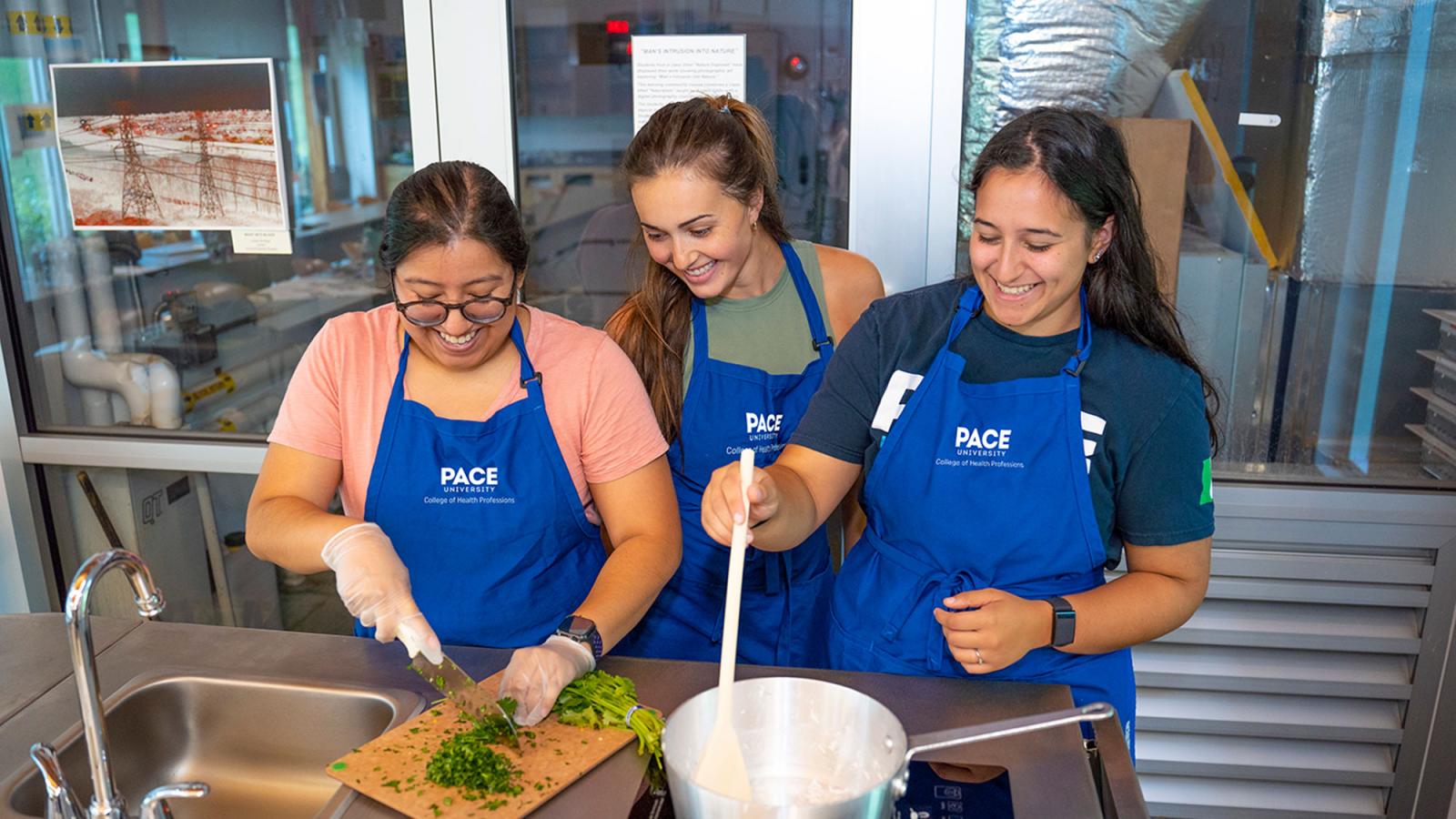
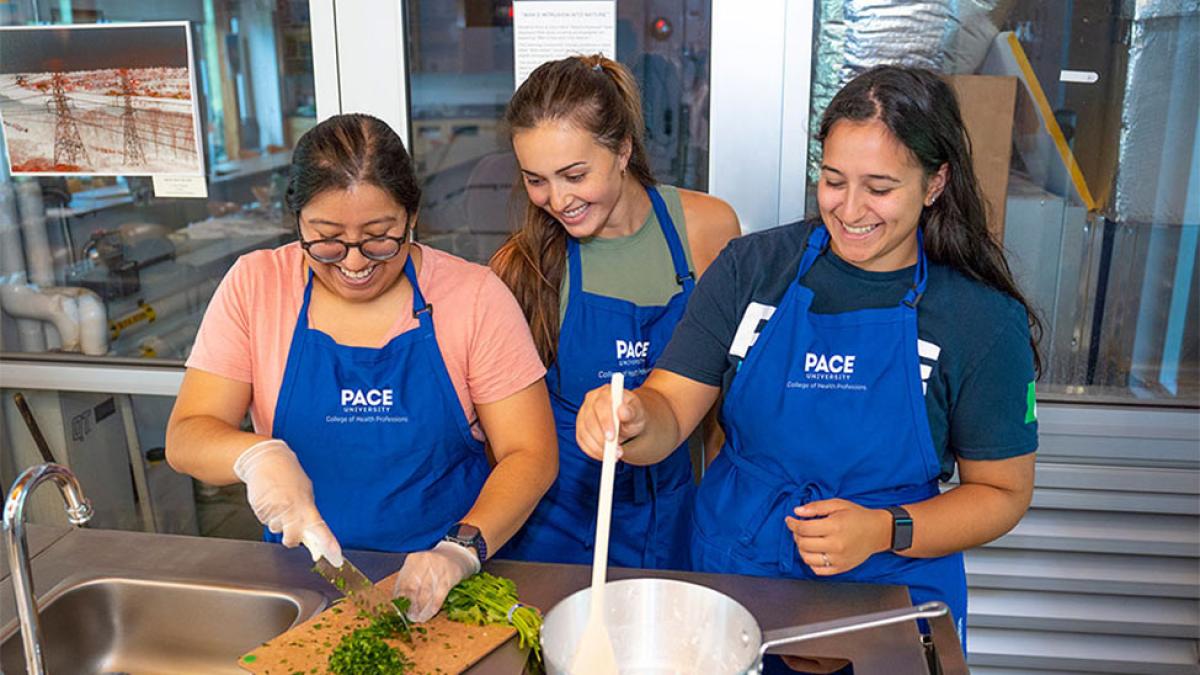
The Nutrition and Dietetics Teaching Kitchen joins the Teaching Kitchen Collaborative
The Nutrition and Dietetics Teaching Kitchen at Pace University has been accepted into the Teaching Kitchen Collaborative (TKC), a leading invitational network of educational, research, and community organizations with teaching kitchens aimed at improving personal and public health.
In being part of the network, Pace joins organizations including Google, Compass Group, and Cleveland Clinic that are leading the teaching kitchen movement to improve health outcomes in the United States and around the world.
“We are thrilled to be accepted into the TKC as an organization member,” said Jessica Tosto, MS, RD, department chair and clinical associate professor, Nutrition and Dietetics. “Joining the TKC allows us to expand our network of innovative, like-minded colleagues, share resources, and collaborate on research and best practices in the field of culinary nutrition to achieve our mission.”
Teaching Kitchen activities take place at the renowned Zwilling JA Henckels Cooking Studio in Pleasantville where faculty teach future Registered Dietitians about the importance of food as medicine, health equity, sustainability, and culinary nutrition skills to future patients and clients. In addition, Nutrition and Dietetics students share their skills and knowledge with other students and members of the Pace community using our on-campus Mobile Teaching Kitchen.
Teaching kitchen programs include collaboration with Feeding Westchester Mobile Market to teach participants healthy cooking techniques, how to prepare unfamiliar foods, and inspire them to try something new.
The Teaching Kitchen also includes nutrition education for student athletes, and culinary nutrition education for the broader student body, which also focuses on utilization of fresh herbs and produce grown in the campus community garden and addressing the issue of food insecurity on campus.
By integrating culinary nutrition education, health, and sustainability, Pace University's Teaching Kitchen initiatives are fostering a new generation of leaders who are equipped with the skills and knowledge necessary to create healthier communities.
In addition to Tosto, the department chair, three Pace faculty members are members of the TKC. They include: Mary Opfer, MS, RDN, clinical associate professor of Nutrition and Dietetics; Denise Tahara, PhD, MPhil, MBA, department chair and associate professor of Health Science; and Beau Anderson, PhD, MA(Ed), associate dean of Allied Health Programs.
“As a Pace student, I am thrilled to witness and contribute to the blossoming of food equity and outreach within my community,” said Vida Velasco-Popov, a student who is graduating later this year. “It fills me with immense pride to be part of a collective effort that seeks to nourish and bridge the knowledge gap between perceived barriers in the kitchen and empowering others to get curious and learn something new. By sharing our knowledge of nutrition and cooking, we are not just helping today’s students, but we are building a healthier future for the entire Pace community.”
The TKC is a unique collaboration of medical professionals, chefs, educators, researchers, and food system experts dedicated to improving personal and public health. The TKC’s mission is to catalyze and empower a growing network of innovators who are changing lives through food. The TKC was formally launched in 2016 by Dr. David Eisenberg, in partnership with The Culinary Institute of America and Harvard’s T.H. Chan School of Public Health, as an invitational network of thought leading organizations using teaching kitchen facilities as catalysts of enhanced personal and public health across medical, corporate, school, and community settings.
In 2020, the TKC became a 501c3 and is now a global network of 58 teaching kitchens. Its members represent a diverse range of organizations, including leading academic medical centers, public youth services institutions, private employers, and public libraries. The TKC functions as a central hub and accelerator to support the reproducibility, scalability, and evaluation of emerging teaching kitchen models and educational programs.
"Pace University's Nutrition and Dietetics Department is teaching a new generation of leaders that food, individual/community health, and the health of our planet are inextricably linked,” said Katie Welch, TKC Executive Director. “The Teaching Kitchen Collaborative is proud to welcome Pace's incredible team to our network, where leaders in the field of culinary medicine share resources, network and collaborate. Through their membership, Pace's innovative collaborations, focus on food equity and sustainability, and robust programs for students and the community, will help inform teaching kitchens around the world."
To learn more about the TKC and for a full list of TKC members, visit their website.
About the College of Health Professions at Pace University
Established in 2010, the College of Health Professions (CHP) at Pace University offers a broad range of programs at the bachelor, master's, and doctoral levels. It is the College's goal to create innovative and complex programs that reflect the changing landscape of the health care system. These programs are designed to prepare graduates for impactful careers in health care practice, health-related research, or as educators, and equip graduates to work in health policy and global health fields. Students in clinical programs receive hands-on training in the College's interprofessional Center of Excellence in Healthcare Simulation and have the opportunity to apply their developing skills in real-world settings at many of the regions' leading clinical facilities. In addition to Nutrition and Dietetics, the College currently comprises several growing and important areas of study, which include Nursing, Physician Assistant, Communication Sciences and Disorders, Health Science, Occupational Therapy, Health Informatics, and Public Health.
About Pace University
Since 1906, Pace University has been transforming the lives of its diverse students—academically, professionally, and socioeconomically. With campuses in New York City and Westchester County, Pace offers bachelor, master, and doctoral degree programs to 13,600 students in its College of Health Professions, Dyson College of Arts and Sciences, Elisabeth Haub School of Law, Lubin School of Business, Sands College of Performing Arts, School of Education, and Seidenberg School of Computer Science and Information Systems.
Pace University Hosts its Spring 2024 Job and Internship Career Fair
Pace University Career Services on Friday hosted one of its signature events: the spring 2024 Job and Internship Career Fair. With record-breaking student turnout, it was the largest Job Fair in the University’s history.
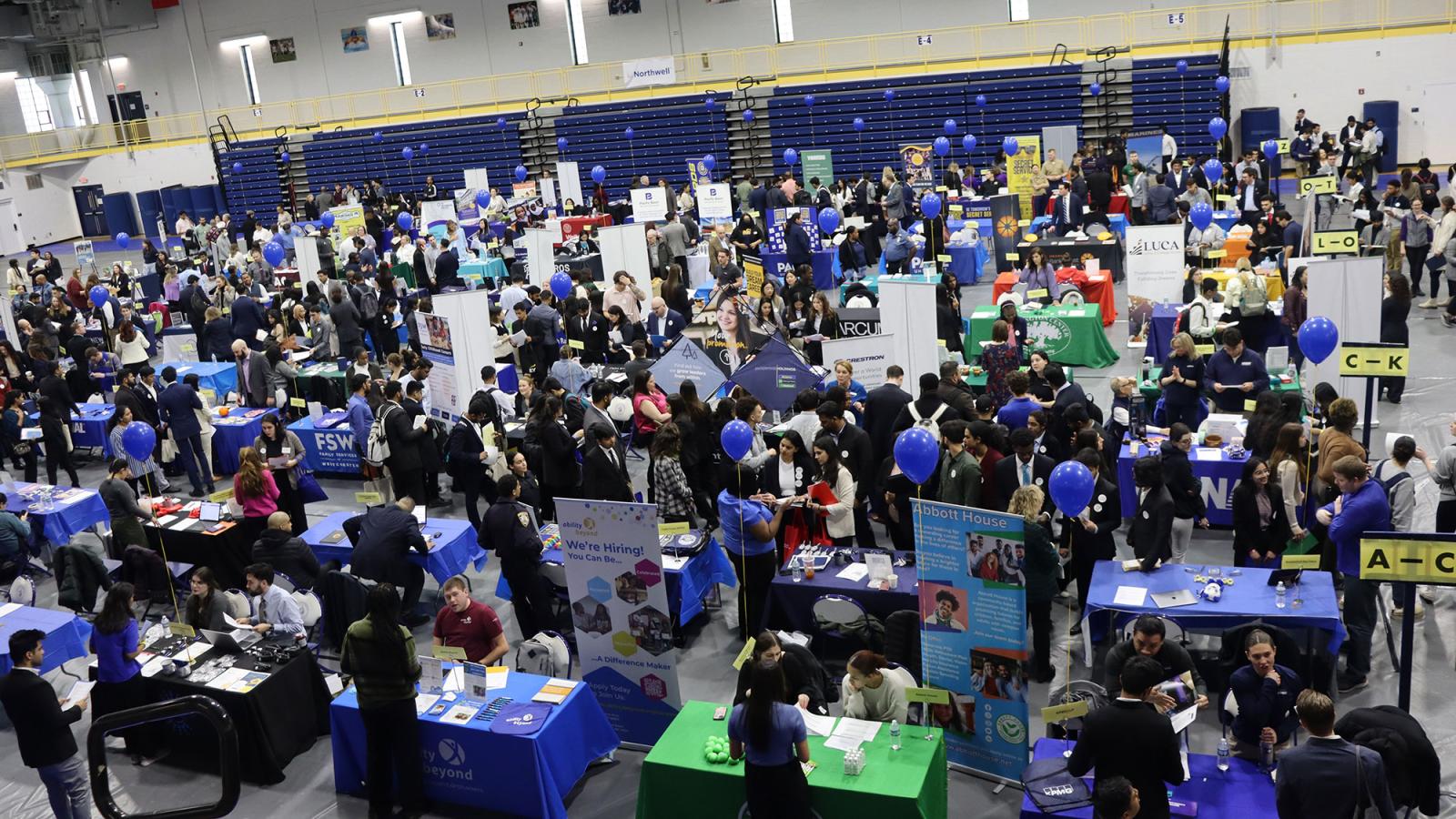
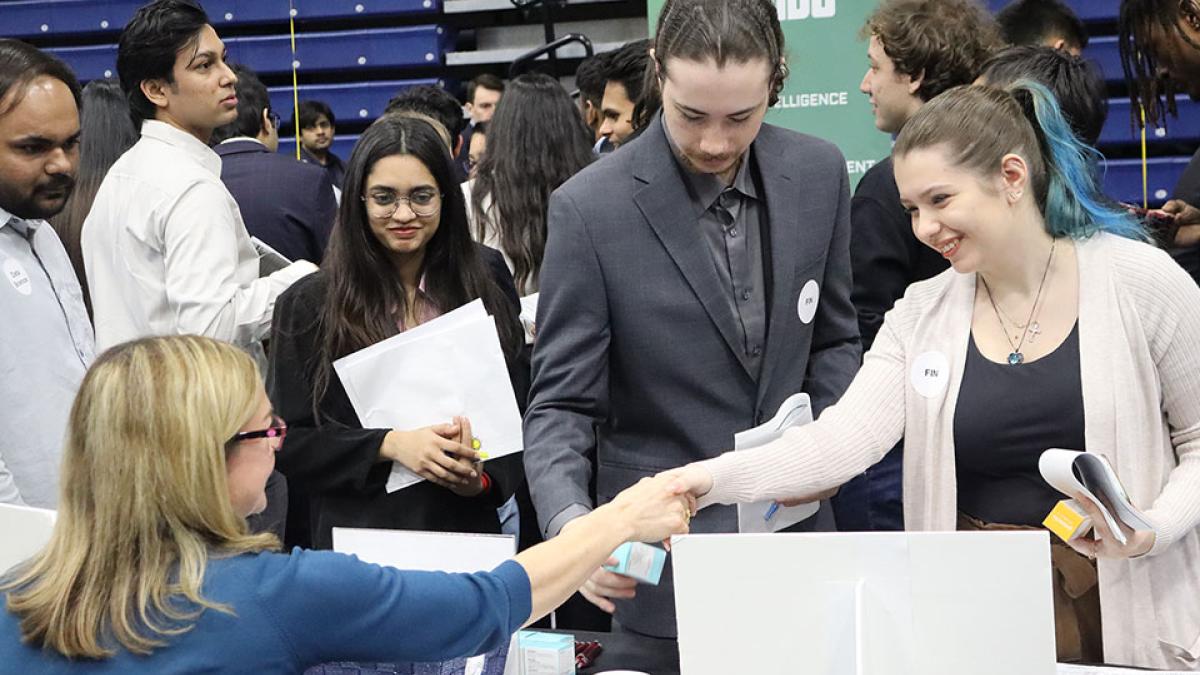
KPMG, New York Red Bulls, Hachette Book Group USA, ZWILLING JA Henckels, Conair, FBI, and Christian Louboutin among over 115 recruiters
Pace University Career Services on Friday hosted one of its signature events: the spring 2024 Job and Internship Career Fair. With record-breaking student turnout, it was the largest Job Fair in the University’s history.
Over 800 hundred students turned out – including many from Pace’s campus in lower Manhattan -- to the employment fair. Over 115 companies were in attendance including New York Red Bulls, Hachette Book Group USA, ZWILLING JA Henckels, Conair Corporation, FBI, Memorial Sloan Kettering Cancer Center, Christian Louboutin, Conair Corporation, and KPMG — the event was open to all majors.
The event featured free smoothies from one of the University’s student-run businesses, music, and other amenities like a “Quiet Room” for students to prepare. KPMG, one of the world’s leading professional services firms, providing audit, tax, and advisory services to many of the world’s most prestigious organizations, sponsored a coffee truck. Not only did this give students a little caffeine boost but allowed an opportunity for extra networking with this “Big Four” accounting giant.
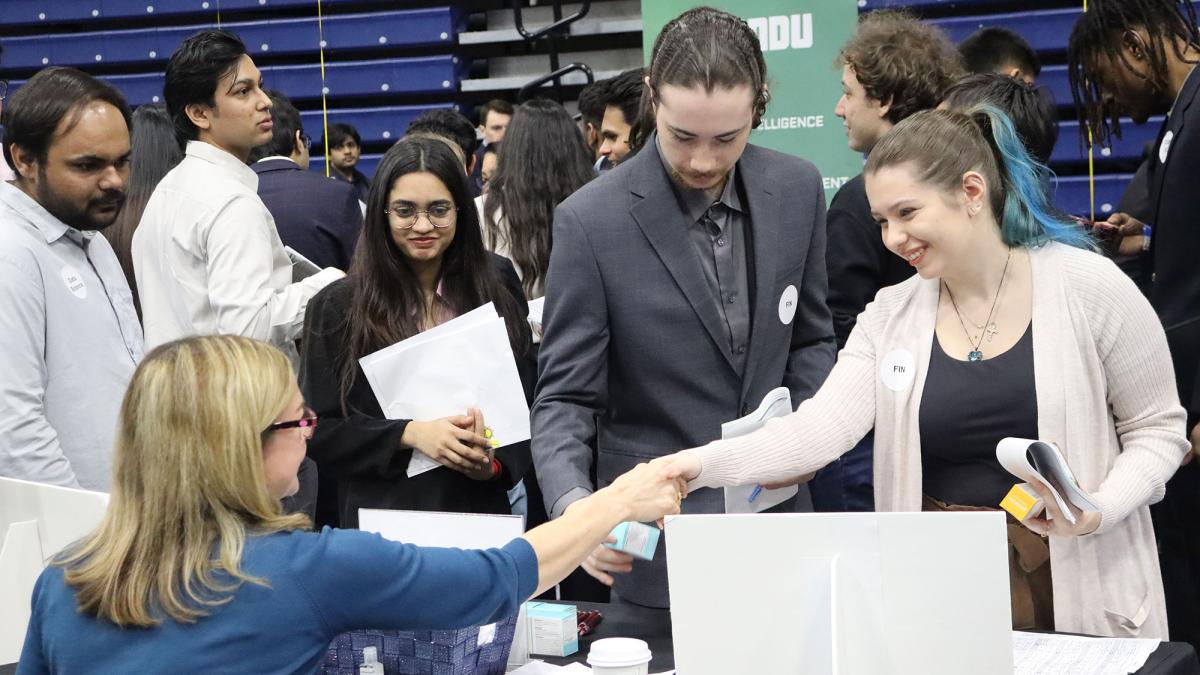
“At Pace, we understand the importance of engaging and preparing our students early, and creating impactful employer events that lead to great internships and jobs,” said Phyllis Mooney, assistant vice president of Career Services at Pace University.
Pace’s Career Services is a leader in the region for providing a range of career counseling and programming to ensure that the students they serve are career-ready and know how to articulate the skills employers are looking for in their entry-level candidates. In fact, as Class of 2023 First Destination Survey review comes to a close, Career Services found that 94% of Pace’s Bachelor graduates were employed or continuing their education six months from graduation.
Pace’s Career Services also offers their employer partners a tailored, successful recruiting experience that introduces recruiters to talented students that represent the very best of Westchester, the New York City region, and the world—resulting in extraordinary outcomes. Top brands that employ Pace students include Amazon, American Express, Christian Dior, FEMA, IBM, Mac Cosmetics, The Madison Square Garden Company, Meta, Microsoft, PepsiCo, Pfizer, and Warner Bros. Discovery.
Daniella Schneider, a junior majoring in Public Relations, took advantage of the “Perfect Your Pitch” workshop to get ready for the fair last fall and made a great impression on Today Media. She accepted a Marketing Internship with Westchester Magazine this semester and is loving it. “This internship has taught me so much in the marketing, advertising, and PR world as well as event planning,” said Schneider. “I love getting to work on different events that Westchester Magazine holds and seeing what goes into these amazing events.”
For Julia Kalem, a graduate student majoring in Human Resources Management from Cologne, Germany, the packed room provided ample opportunities to land a job or an internship.
“This is my first time visiting the Pleasantville campus, it’s been quite enjoyable,” said Kalem, who was among students from the lower Manhattan campus that attended the Job Fair. “Today, I've had productive interactions with several recruiters who have been very open. Currently, I'm interning at a bank and exploring opportunities to remain in the United States temporarily before eventually returning to Germany.”
Sports marketing major Alexandra Witucki 26’ engaged in a conversation with Marshall Adrian Diaz from the Federal Air Marshal Services. “Today, my aim is to broaden my horizons and establish valuable connections,” said Witucki. ”I’m eager to explore the opportunities available and so far, it's been quite promising.”
About Pace University
Since 1906, Pace University has been transforming the lives of its diverse students—academically, professionally, and socioeconomically. With campuses in New York City and Westchester County, Pace offers bachelor, master, and doctoral degree programs to 13,600 students in its College of Health Professions, Dyson College of Arts and Sciences, Elisabeth Haub School of Law, Lubin School of Business, Sands College of Performing Arts, School of Education, and Seidenberg School of Computer Science and Information Systems.
Connecting Across Communities and Cultures: Experiential Learning in Media and the Arts
Beyond the intrinsic experiential nature of studying the arts and media, Dyson embraces a deeper approach, focusing on community connection and cultural competence.
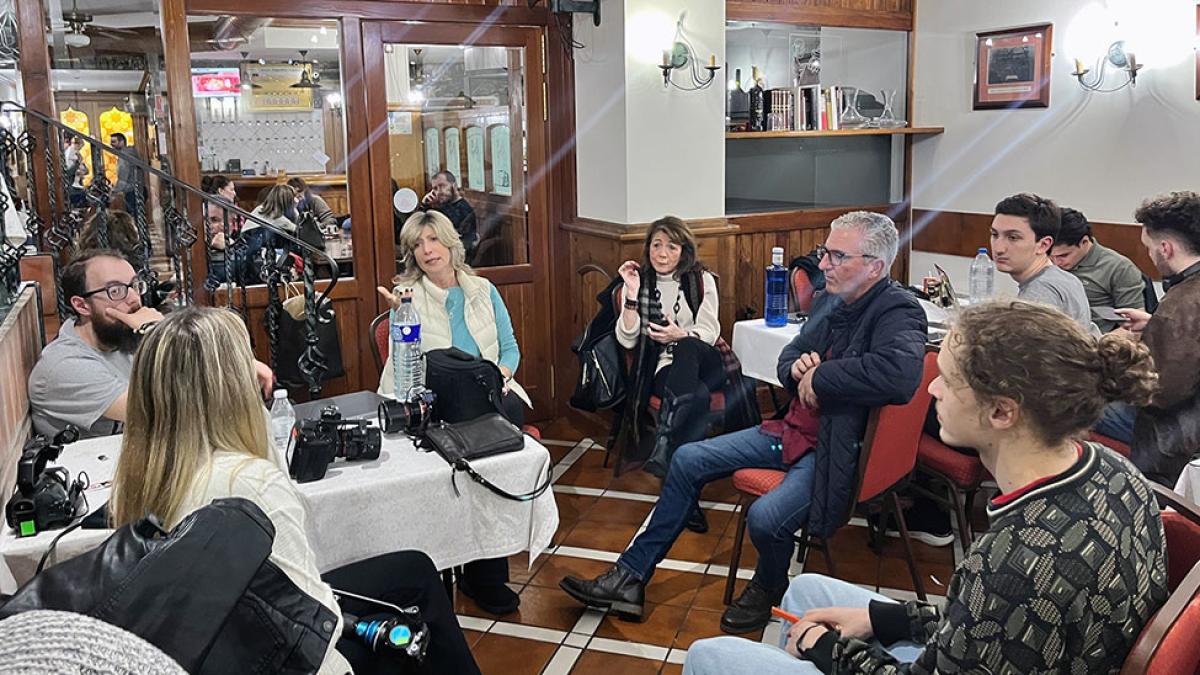
Experiential learning—immersing students in meaningful opportunities that transcend a traditional classroom model—is at the heart of the Dyson College of Arts and Sciences, no matter what discipline a student has chosen to study.
“When we are engaging students in experiential learning, we are giving them the chance to do their own research and learning,” said Kelley Kreitz, PhD, associate professor of English and the director of experiential learning and the Pace Path. “And in turn, those projects become demonstrations of students’ independence, creativity, ability to collaborate, and more.”
In studying media and the arts in particular, an experiential aspect is already inherently present—creating sculpture, editing a film, writing a news article. Beyond this intrinsic hands-on nature, Dyson embraces a deeper approach to the arts and media, focusing on community connection and cultural competence.
Take a look at a few of many examples of how learning comes to life in media and the arts in Dyson College.
Art Gallery Internship: Implementing Bloomberg Connects Audio Guides (NYC Campus)
This fall, art gallery interns Aryana Gandhi ’25, Entrepreneurship (Lubin), and Amaya Washington ’24, Sociology/Anthropology, under the leadership of Art Gallery Director Sarah Cunningham, MFA, spearheaded a project to implement Bloomberg Connects Audio Guides in the Pace University Art Gallery.
Bloomberg Connects is a free smartphone app that enhances the gallery experience through interactive maps and exclusive content. The guide also improves accessibility for gallery visitors with features such as voice-overs, transcripts, and the ability to zoom in on text.
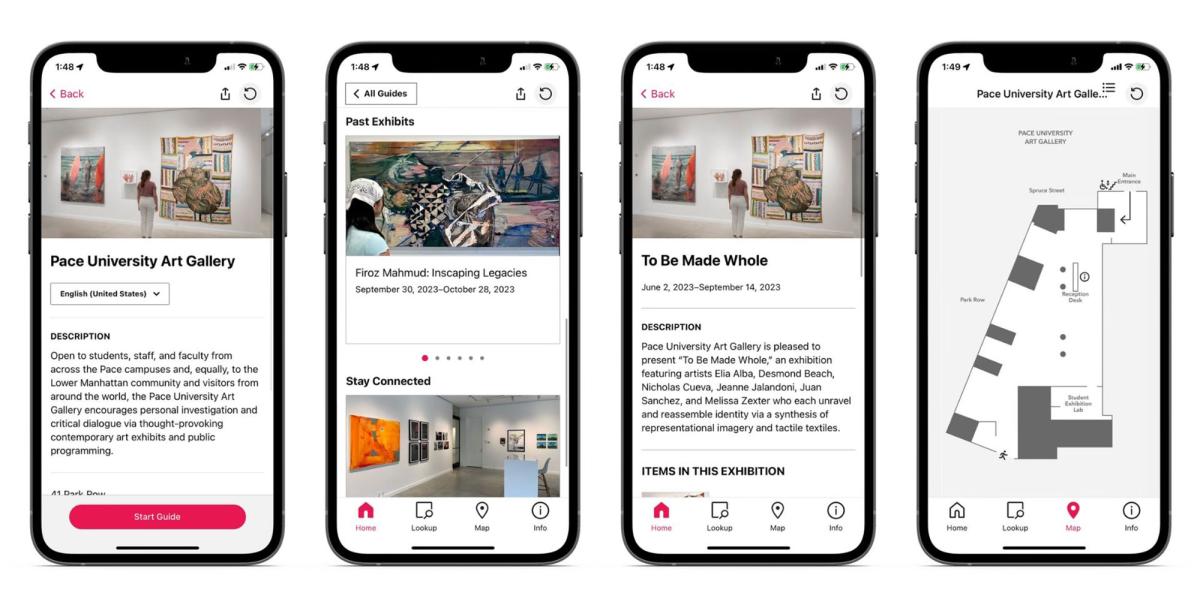
“Aryana and Amaya were responsible for every aspect of the project—learning the software, drafting the text, gathering images for past and current exhibits, conducting interviews (and arranging transcription), editing videos, etc.,” Cunningham said.
The Pace University Art Gallery launched the Bloomberg Connects Audio Guides for the opening of Mie Yim’s Mother Octopus exhibition, which was on view from November 14, 2023—January 20, 2024, and continues to employ the app for gallery visitors.
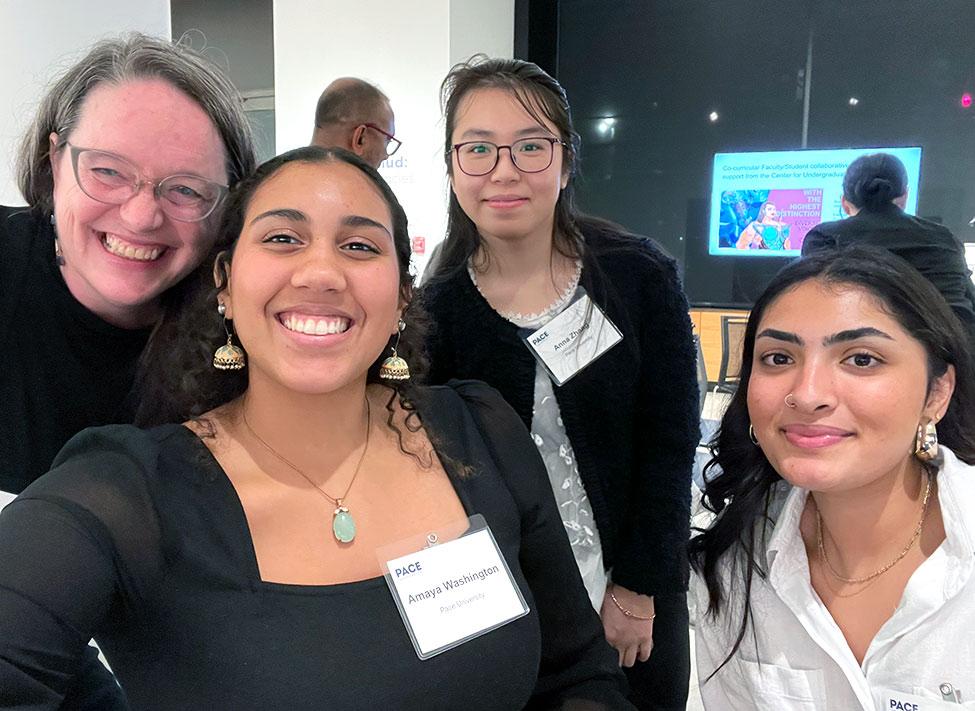
“I decided to work in the art gallery to get as much firsthand experience in the gallery management world as possible,” said Gandhi, whose role in the project focused on learning the Bloomberg Connects content management system. “The most rewarding part was seeing it all come together and being able to have a tangible product to show visitors and University executives.”
CMS 270: Political Communication (NYC Campus)
Taught by Assistant Professor of Communication and Media Studies Brian McKernan, PhD, the Political Communication course aims to equip students with crucial skills in persuasive communication, including rhetorical appeals, agenda setting, and framing. “Understanding these concepts may also strengthen our democracy by providing us with a clearer understanding of political figures’ persuasive efforts,” said McKernan.
The course employs experiential learning in an innovative fashion—students compose campaign speeches with the assistance of generative AI, evaluating the persuasiveness and accuracy of the AI speech and revising it accordingly. Students complete a similar assignment to create a campaign ad.
“The generative AI component provides students with firsthand knowledge of the benefits and limitations of using generative AI,” said McKernan, “a vital skill given the popularity of generative AI in political communication and other professional fields.”
Gabrielle Preudhomme ’25, Communication and Media Studies, chose to focus her projects on vulnerable LGBTQ+ rights, gun control, and climate change solutions, noting her passion for these issues, as well as their timeliness.
“Our lessons on rhetoric have stuck with me since I completed the course,” Preduhomme said. “The concept of rhetoric has appeared within many of my recent courses in unusual ways, but without the fundamental understanding of rhetoric and persuasion provided by Professor McKernan’s class, I would not have such a comprehensive perception of the concept.”
ENG 326E Topics in Professional Writing: Art of Content Creation (Westchester Campus)
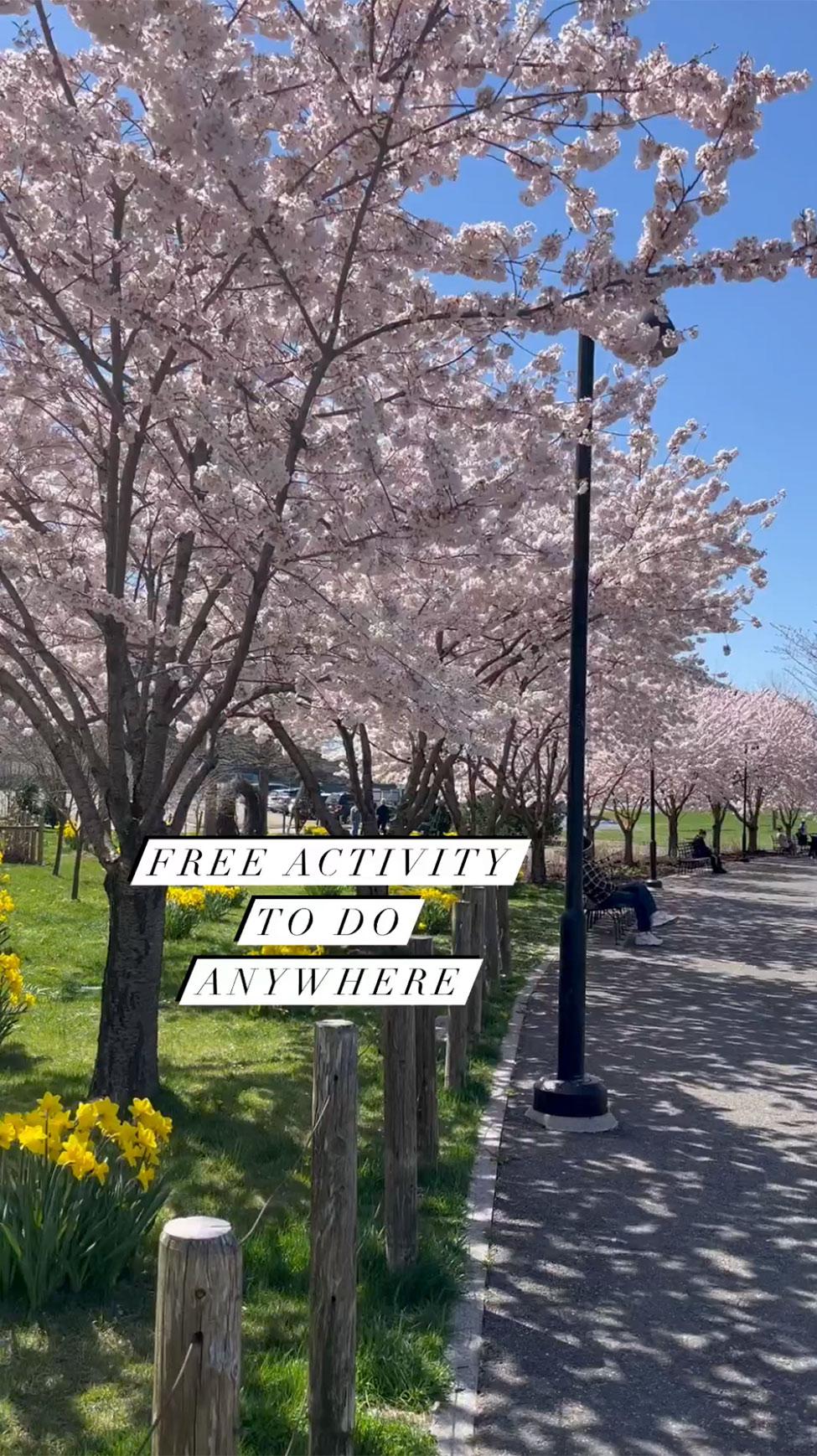
The Art of Content Creation course, taught by Assistant Professor of Writing and Cultural Studies Dana Cadman, MFA, focuses on business writing and digital communication. Students first analyze texts and content from recognizable companies and popular social media influencers. They then employ the techniques they’ve studied, focusing on creating their own brand based on their personal interests. Projects include business writing (pitches, branding guides, mission statements, etc.), analytical and argumentative long-form pieces, and emerging forms of digital communication, including microcontent and full-length videos.
Cadman said: “The course works to consider essential questions driving the field: What are the newly emerging rules of language in a virtual space? Are we post-grammar? How is identity communicated digitally? How have traditions in professional writing become newly mediated by social networking? How do we connect to the values of our audiences? Is authenticity possible online?”
Mary Duffy ’24, BA Writing and Rhetoric/MS Publishing, enjoyed the opportunity to create work relevant to her own interests and the current landscape. “What you learn in this course is new, updated, and fresh,” she said. “As anyone can see, content, technology, and social media are the new driving forces of culture, and learning how to navigate that world can be beneficial to just about anyone, in any field. This course will absolutely be beneficial for my future endeavors as I work towards a career in publishing and marketing, as well as for establishing my own personal brand as a writer and artist.”
View the videos produced about free activities and Pleasantville on YouTube.
MCA 655: Producing the Documentary (Westchester Campus)
Each year, the Producing the Documentary course, open to both undergraduate and graduate students, and taught by Clinical Assistant Professor Lou Guarneri, MFA, and Professor Maria Luskay, EdD, of the Media, Communications, and Visual Arts department truly embodies the spirit of experiential learning. Students spend the semester working tirelessly to produce a professional documentary on a culturally and globally significant topic and spend spring break travelling to an international destination to film on location. Previous films have won numerous awards and accolades at film festivals across the country.
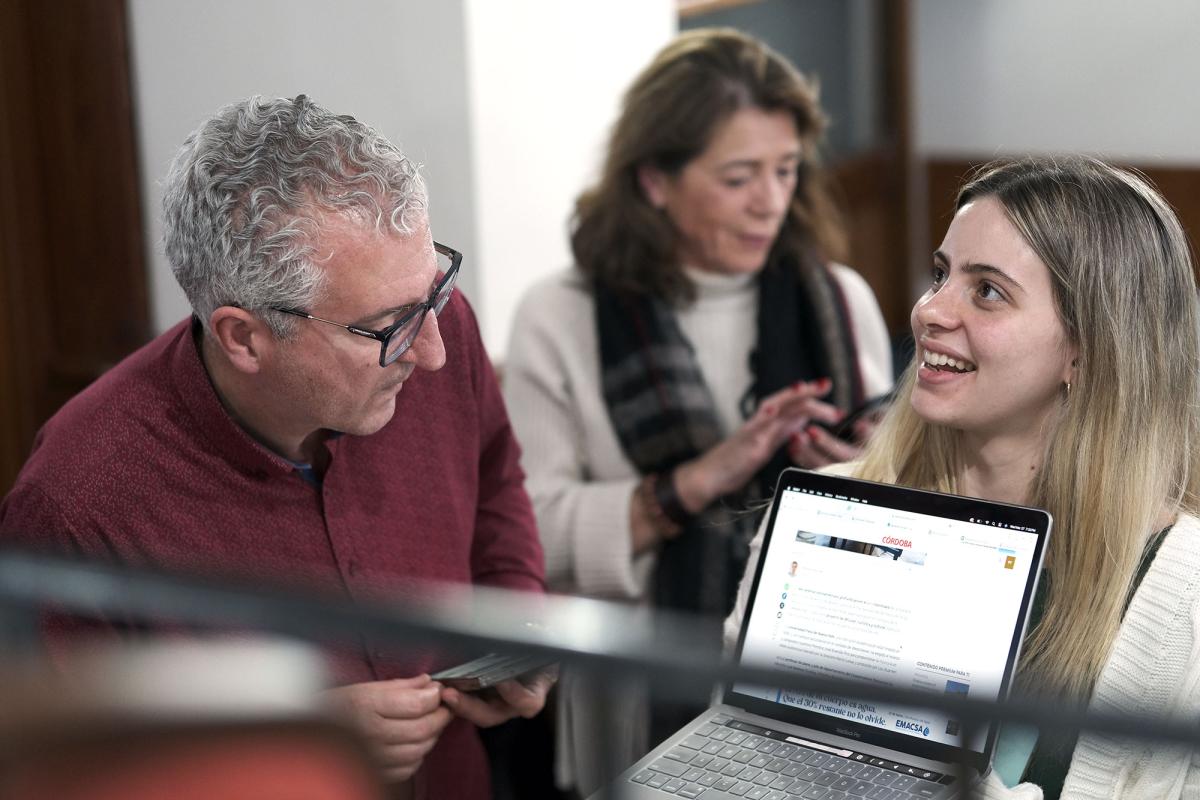
This year’s documentary is focused on wine cask making, also known as cooperage, a hallmark of the Andalusian region of southern Spain. Students are learning the history of cooperage—which dates back centuries—as well as the current state of the industry, which is in jeopardy due to digital technologies and declining interest in the profession. During their recent trip to Córdoba, Montilla, and Málaga, the documentarians met with cask makers, local wine experts, and musicians, while immersing themselves in the region’s history and culture.
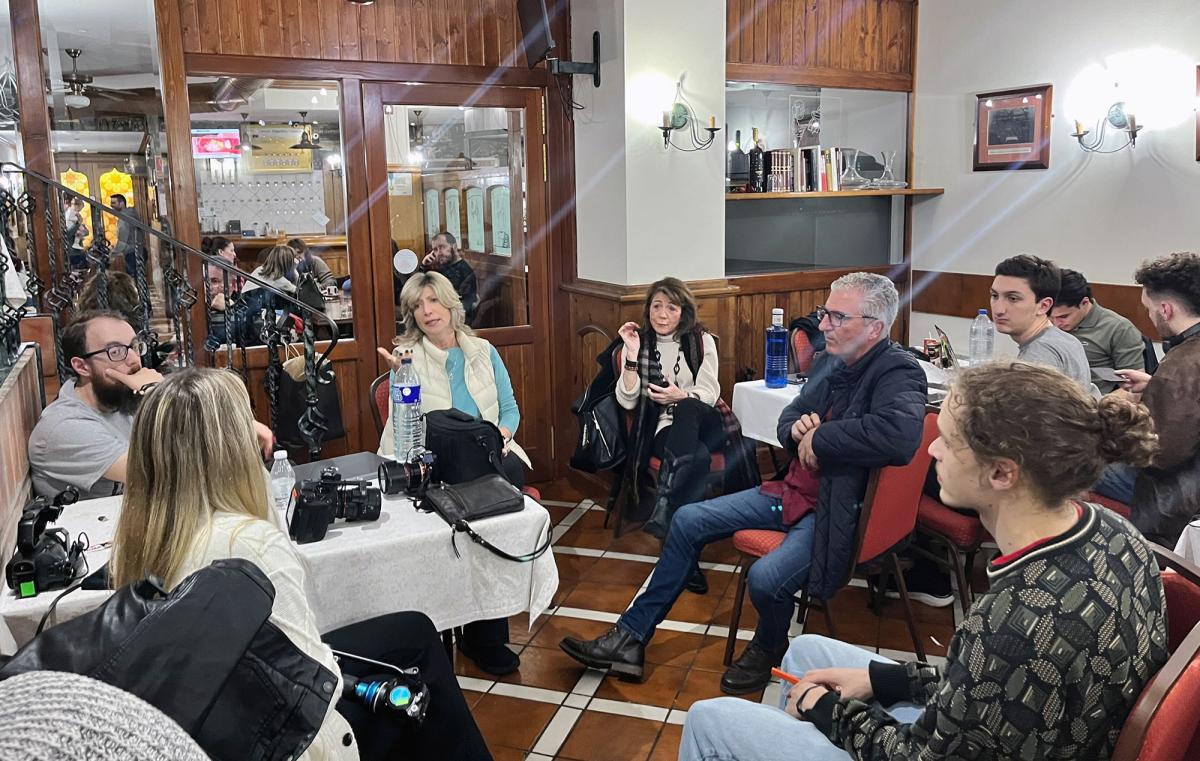
“We had busy days [in Spain], but we were still happy to spend dinners and nights together laughing until we cried, dancing, and working together to set ourselves up well for the intense three weeks of post-production work ahead,” Rachel Hutchings ’24, MA Communications and Digital Media, wrote on the group's blog on the final day of their trip. “Having the incredible Professors Luskay and Guarneri was critical to our ability to develop the documentary in such a short amount of time.”
The film will premiere on May 2 at the Jacob Burns Film Center in Pleasantville, New York.
Pace Poetry and Prose Festival (Westchester Campus)
Hosted by the Writing and Cultural Studies department, the Pace Poetry and Prose Festival is an annual two-day event that features guest speakers, workshops hosted by renowned writers, student writing awards, and the launch of CHROMA, the student-created literary magazine.
This year’s event in mid-April included a poetry brunch with Dorothea Lasky, a workshop with and reading from Mahogany L. Browne, and a storytelling session and workshop with Jimin Han.
“The Festival serves as a platform to honor and showcase the diverse and vibrant forms of poetic expression from our own Pace student artists and from our esteemed invited speakers,” said Duffy, who serves as the creative assistant for the Festival. “The event fosters a sense of community among poets, writers, artists, and general art enthusiasts. It brings this diverse group of people together and creates a vital space for dialogue, connection, and mutual appreciation of the arts.”
Tackling Cancer Treatment Resistance
Through a grant from the National Cancer Institute, Professor of Biology Nancy Krucher, PhD, Anastasiia Vaska ’24, and Michael Ferretti ’24 are exploring how a new cancer drug could help tackle the resistance patients can develop to ongoing treatments.
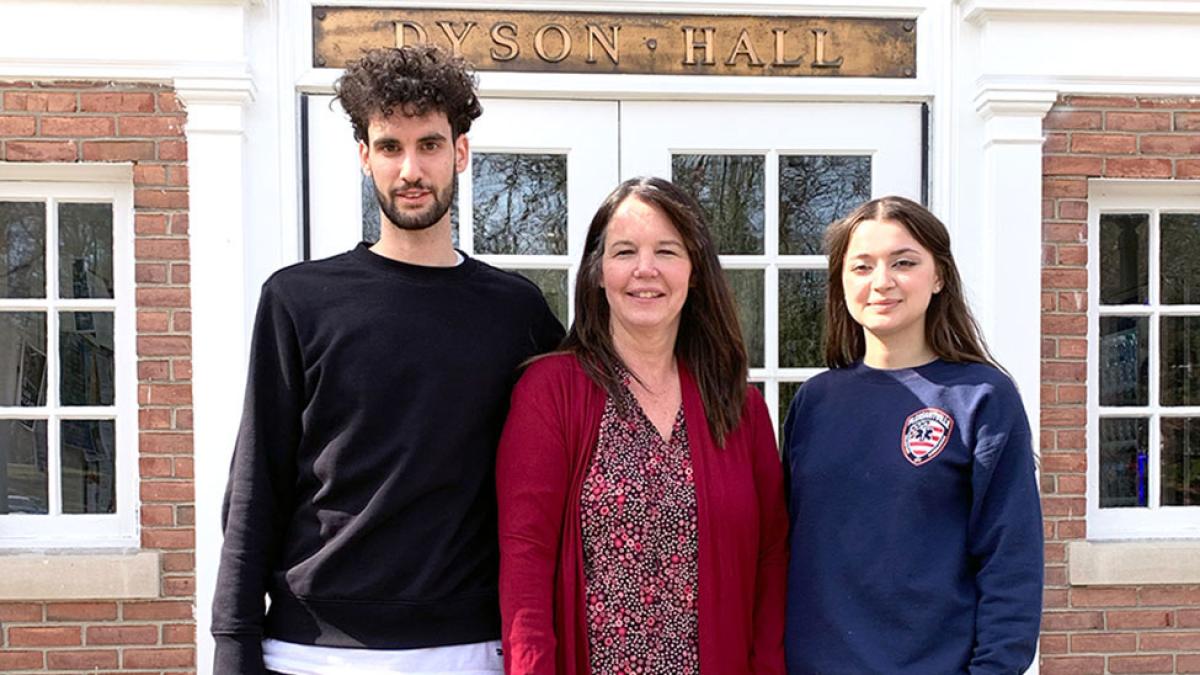
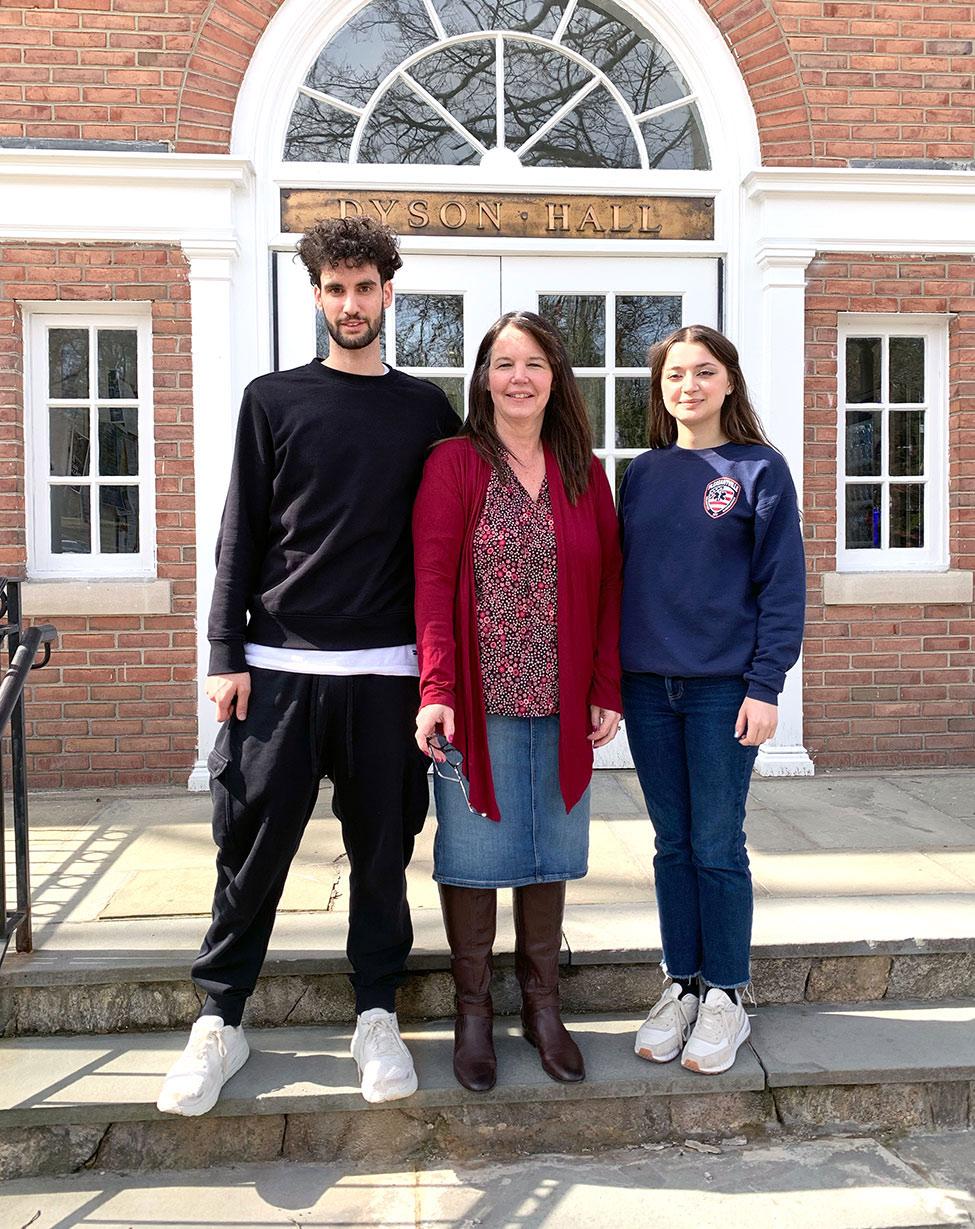
Professor of Biology Nancy Krucher, PhD, has been involved in cancer research for nearly 30 years—a passion that began when she was an undergraduate student immersed in a lab environment for the first time.
Now, her mission is to provide that same experience for her undergraduate students on the Pleasantville campus.
“Honestly, it's the best part of my job,” said Krucher, who’s been working with students in the state-of-the-art lab since she joined Pace 25 years ago. “I was an undergraduate and worked in a lab, and that changed my life and I decided to become a scientist. It’s important for me to bring the students in and get them excited about science and research.”
Last year, Krucher received a three-year, $400k grant from the National Cancer Institute (NCI) through the National Institutes of Health (NIH) to study alternative methods to combat cancer cells’ development of resistance to targeted treatments, focusing specifically on breast cancer and melanoma cells.
“Many treatments in cancer will work on a patient for a few years and then the treatment stops working—that's called resistance,” said Krucher. “So, I developed an idea of how we could reverse that resistance. My team has been working on melanoma and this particular drug that we think is going to be very interesting as a possible melanoma treatment.”
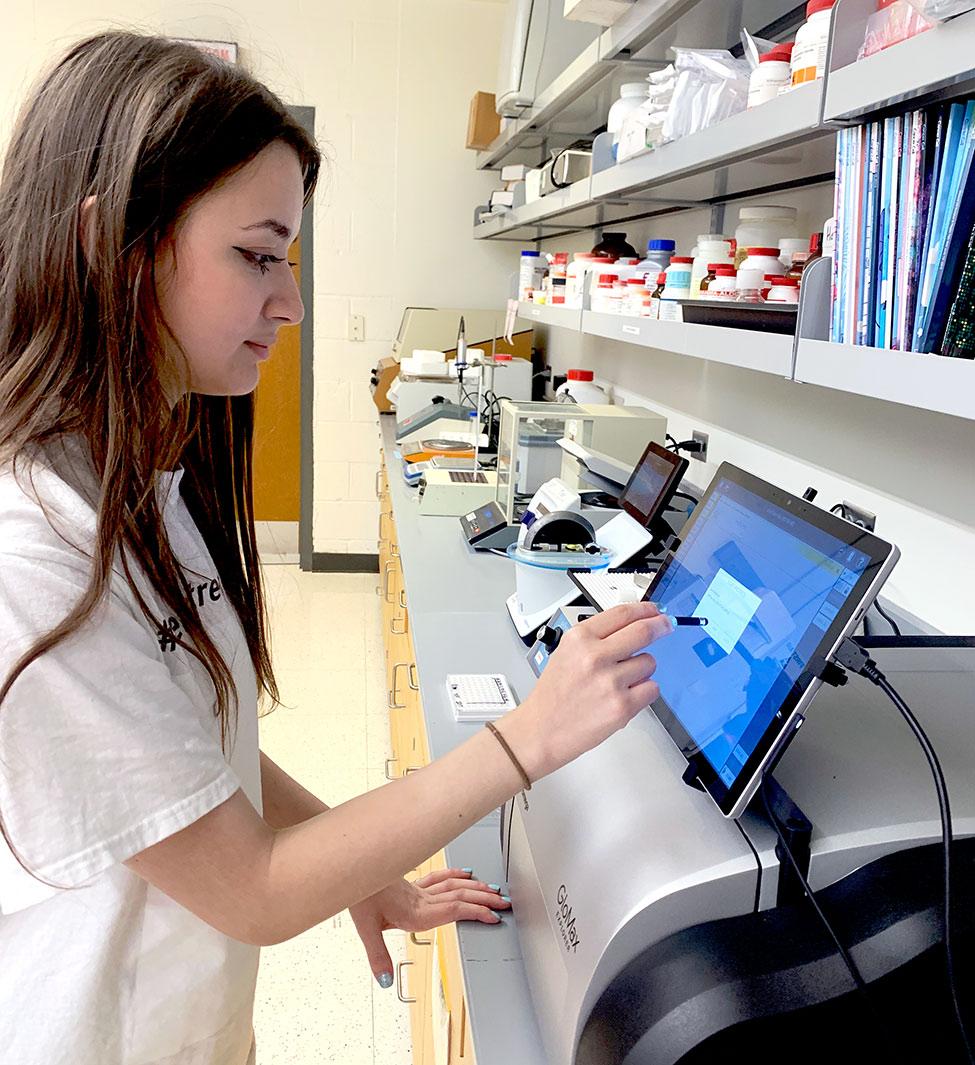
This year, biology students Michael Ferretti ’24 and Anastasiia Vaska ’24 have joined Krucher in her pursuit, working with 3D models of melanoma cells—because they’re more physiologically accurate as to how tumors behave in a live patient—and studying the cells’ reaction to the drug.
Within the cells, the group is studying the expression of various proteins that can contribute to cancer growth. They’re working to determine the correlation between the expression of the proteins and programmed cell death (the death of a cell due to processes within the cell) to understand the mechanisms in which this drug could successfully kill cancer cells.
Understanding these processes can lead to better combination cancer treatments—treatment through more than one drug—Krucher said. “Combination treatments have higher efficacy and lower system toxicity, meaning patients have fewer side effects and tend to respond to the treatment longer.”
For Vaska, in particular, working on this significant project has opened a new world. “I'm from Ukraine, where we don't really have a lab component to the vast majority of our classes,” she said. “I'd never even seen a microscope back home. When I first heard about doing experiments in the lab, I thought, ‘Wow, I could I really get my hands on that.’ And now I do that 10 hours a week.”
Ferretti had also taken an interest in Krucher’s work, and, after enrolling in two of her courses and discussing her research together, was enthusiastic to join the project.
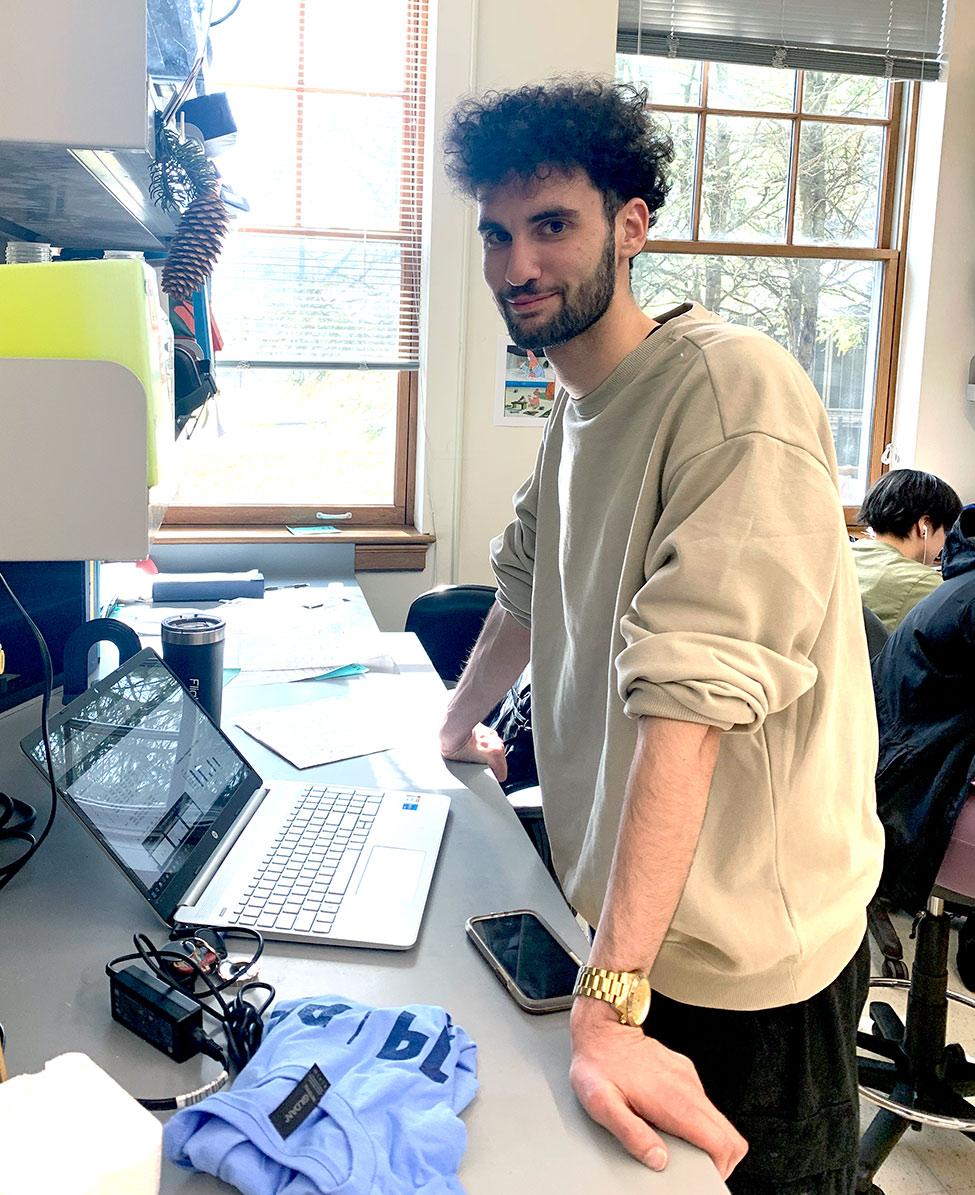
“I was a bit nervous when I first found out I was going to be working with 3D cancer cells,” said Ferretti, noting the fragility of the cells. “There are certain techniques you have to be proficient in, and not every experiment comes out the way you’d hoped. There’s a lot of trial-and-error involved, so when they come out well, it’s a very rewarding feeling.”
Krucher added, “Science is a lesson in persistence, and we learn that in the laboratory. It’s useful in all of life, really.”
Before Vaska graduates this spring, the group hopes to make significant progress on a paper for publication detailing their results. “We have reason to believe that this drug will eventually be developed by pharmaceutical companies,” said Krucher. “And we think it's important that they understand how the drug works. So we have a lot of data on that."
Vaska and Ferretti also recently presented their work at Pace University’s Society of Fellows Annual Meeting, a research conference held by Dyson College’s premier honor society.
“I'm very happy with how we've overcome the challenges and just how well we work together as a team,” said Ferretti. “Everybody is really excited about our research, and nobody is holding anyone back. We're all pushing each other forward to keep getting good data.”